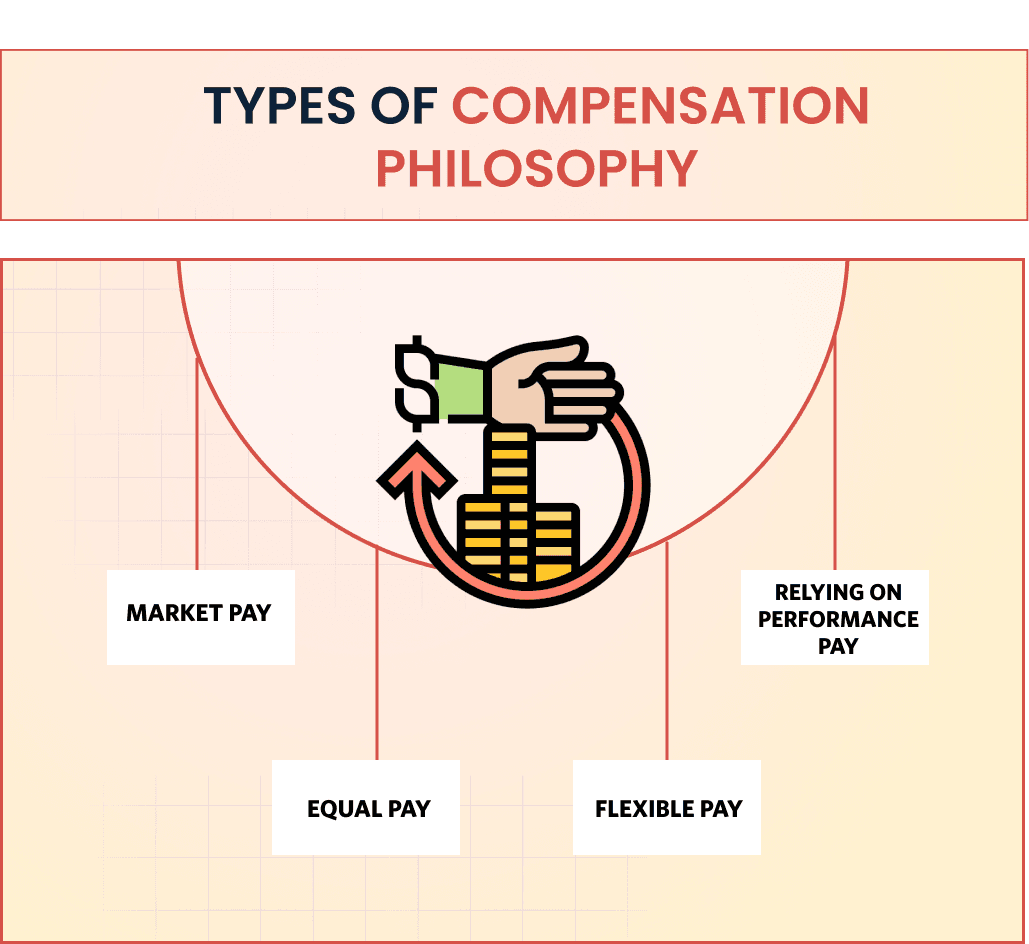
An organisation's compensation system is supported by a robust compensation philosophy. It specifies how employees will be compensated for their efforts and guarantees equity, consistency, and alignment with corporate goals.
As a fact, 86% of respondents say that non-financial incentives factor into their compensation strategies has a direct impact on their performance and also enhances the company culture.
Let's understand this in-depth and touch on the advantages of having a well-thought-out pay philosophy for your company as well as how to develop one.
A formal declaration outlining an organisation's approach to employee remuneration is called a compensation philosophy.
It represents the company's beliefs, objectives, and approaches to employee compensation, striking a balance between the necessity of competitive pay and the principles of internal equity and fiscal sustainability.
Depending on how organisations prioritise pay structure, many compensation ideologies exist. These are a few prominent kinds:

The goal of the market pay concept is to equal or surpass the industry average for jobs that are comparable in salary.
For instance, to attract top personnel and keep a competitive edge, big giants such as Apple and Microsoft pay their software engineers more than the industry average.
An organisation that places a high priority on equal pay aims to guarantee justice throughout the entire organisation.
For instance, Salesforce gained media attention when it announced its intention to eliminate the gender pay gap and invested millions in salary adjustments to guarantee that men and women are paid equally for tasks that are identical.
This type of pay lets employees alter their benefits package.
For instance, HubSpot provides flexible benefits, letting staff members select from increased pay, greater vacation time, or better healthcare coverage based on their individual need.
Performance-based pay relates compensation to individual, team, or company achievements.
Employers like Tesla, for instance, pay staff members according to how they contribute to KPIs, such as production goals or sales targets.
An effective compensation strategy provides a number of important advantages, such as-
You can draw in top talent and hold on to important staff by matching your pay scale to market prices.
Ensuring that workers receive just compensation for their responsibilities and contributions within the company is made easier with a defined compensation philosophy.
Employees are more motivated and satisfied when they believe their pay is in line with market standards and their level of performance.
It aids in ensuring adherence to laws governing equal pay, minimum wages, and other rules connected to remuneration.
It guarantees that financial resources are distributed sensibly by assisting the organisation in more efficiently managing compensation costs.
Employee understanding of the rationale behind pay decisions promotes open communication, transparency, and trust within the company.
An effective compensation philosophy is flexible and adaptive, enabling changes in response to changing market conditions, corporate objectives, or firm expansion.
Take these essential steps to create a relevant philosophy of compensation:
Recognise the long-term objectives and cultural norms of your business. These should be reflected in your compensation philosophy, which should also encourage development and job satisfaction.
Find out what comparable companies are selling by researching industry benchmarks. This guarantees that your pay is reasonable and in line with what the market will bear.
Determine the salary ranges for every position in the company. These salary ranges ought to take internal equity, positional worth, and the market rate into account.
Benefits, bonuses, and non-cash rewards like career advancement should all be a part of your compensation philosophy.
In addition to base pay, your compensation philosophy should encompass bonuses, perks, and non-cash rewards like work-life balance programs and career development opportunities.
Openness is essential. Make sure staff members are aware of how pay is determined and how their performance or growth can affect their salary.
Make sure your remuneration philosophy is in line with changing employee expectations, market trends, and organisational goals by reviewing and adjusting it on a regular basis.
There may be restrictions on compensation philosophies.

There’s no point if you have it all but your employees are unaware about it. So, communicating the compensation philosophy becomes vital.
A compensation philosophy ought to be examined once a year or in response to significant events like variations in the economy, fast corporate expansion, or modifications in the market.
For example, Spotify reviewed their benefits following significant market growth to make sure that they remained competitive.
A strong compensation philosophy is necessary to ensure internal equity and external competitiveness, motivate employees, and align pay structures with business objectives.
Using platforms such as CompUp, a comprehensive compensation management tool created to assist organisations in developing, implementing, and promoting pay strategies, will streamline this process.
With CompUp, you can evaluate market data, maintain internal equity, and design a flexible and transparent compensation structure.
Easily create a clear, competitive, and equitable compensation philosophy that supports your company's objectives and maintains employee motivation by giving CompUp a try today.
Community Manager (Marketing)
As a Community Manager, I’m passionate about fostering collaboration and knowledge sharing among professionals in compensation management and total rewards. I develop engaging content that simplifies complex topics, empowering others to excel and aim to drive collective growth through insight and connection.
Revolutionizing Pay Strategies: Don't Miss Our Latest Blogs on Compensation Benchmarking